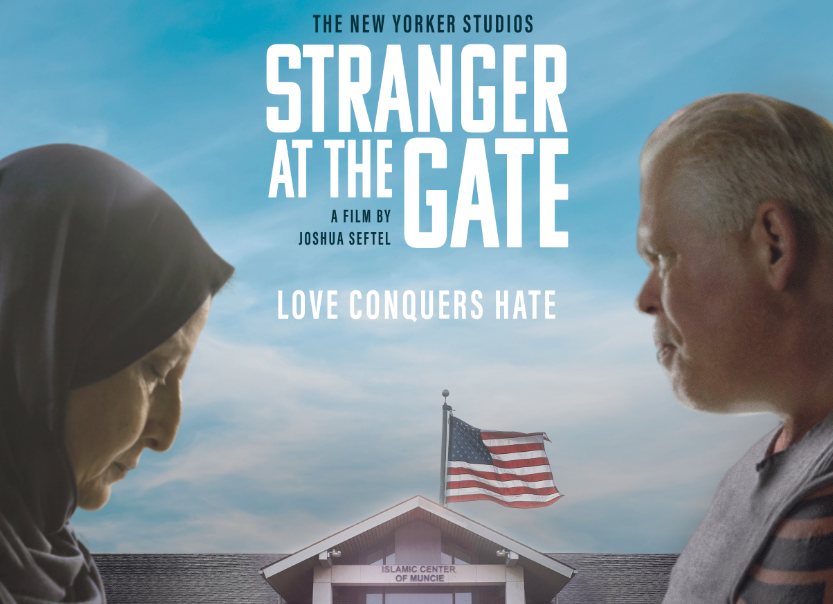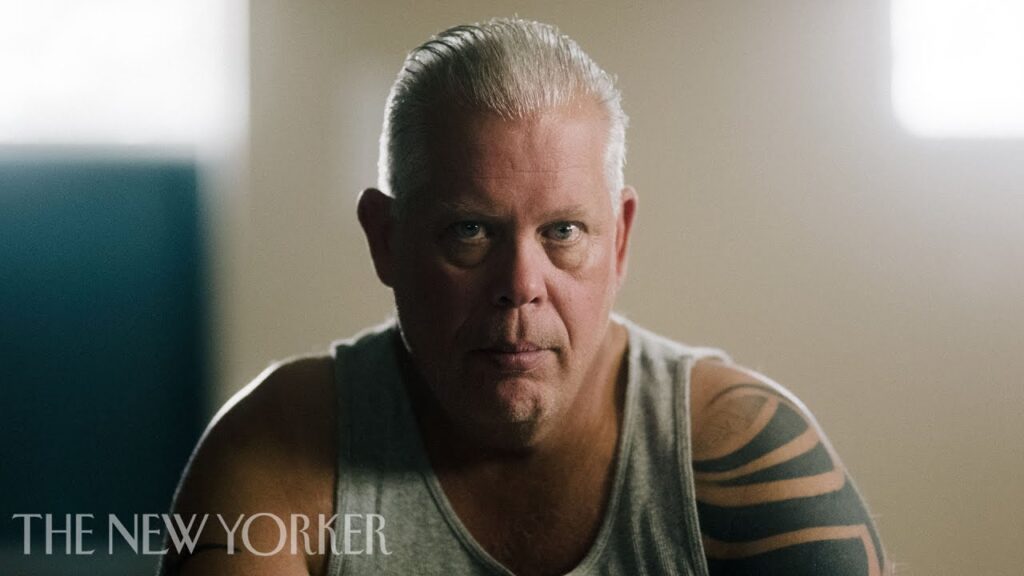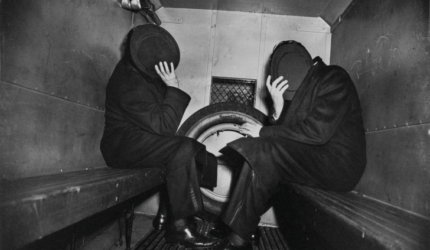
Former U.S. Marine Richard “Mac” McKinney was making plans to set off a homemade bomb in his hometown’s mosque, the Islamic Center of Muncie, Indiana. He was hoping to kill or injure around 200 innocent people. But upon visiting the mosque unarmed to get a sense of who he was about to attack, he was met with nothing but kindness from the community. Now Mac, who has since converted to the Islamic faith, wants to share his story to prevent hate and spread understanding.
Mac’s story is the subject of “Stranger at the Gate,” a 2023 Academy Award nominee for Best Documentary Short Film. The film, directed by Joshua Seftel and produced by Malala Yousafzai and The New Yorker, was screened for CUNY SPS students by the School’s Committee on Institutional Equity and Diversity (CIED) on October 23 via Zoom. Following the screening, the CIED held a discussion with Mac himself, as well as Bibi Bahrami, a close friend of his who is part of the Muslim community in Muncie.
“It’s just a matter of this movement that I try to get across from hate to understanding,” Mac said during the discussion. “It’s just that. It’s understanding. It’s learning. It’s taking a minute to find out. And we can avoid a lot of problems in our world’s society, if we just took a moment. That’s all it takes.”
In the documentary, Mac is shown dressed as a Westerner — short hair slicked back, clean shaven, and a tank top. However, in the time between the film shooting, sometime in 2021, and the discussion at CUNY SPS, he had grown a long, white beard and was wearing traditional Muslim dress, including a black skull cap.

Mac’s transformation began with that first mosque visit back in 2009. He received a hug from one of the men there, which prompted him to visit again. Every time, he was greeted warmly as a member of the community. When Bibi invited him to dinner, he was humbled, and accepted the offer. The two have been friends ever since.
“I think it’s our one message, our shared humanity, that we are all the same, the same desire, same feeling, and same wishes for life, to live in peace and understanding and respect the differences that God all [has] created [in] us,” Bibi said during the discussion. As an Afghan refugee herself, Bibi had been living in Muncie for decades before meeting Mac. She added that the six years she spent in a Pakistani refugee camp were difficult, but her family instilled in her a desire to help people in need, often through sharing a meal together.
“I gave him some dessert and then I just directly asked him, Brother Richard, was that something [I heard] truly a rumor?” she said. “It is true. He admitted that he said yes, unfortunately. He shared his heart, and he had a lot of hate.”
Mac explained, “This hatred that I had…it was like another organ in my body. I was afraid to let it go. I mean, you don’t want to lose your heart, right? Or your liver, or anything like that. I was making this hatred that I felt equal to my heart. I can’t get rid of that. I’ll die. And of course, dying was not anything I was afraid of. It’s dying without a reason, dying without a purpose. That’s scary, even to this day.”
As a Marine, Mac served in Iraq and Afghanistan for years where he saw combat. Upon returning to Muncie, he coped with PTSD, alcoholism, and Islamophobia. It was his young daughter who influenced his decision to visit the mosque in advance of his planned attack that eventually saved the lives of the congregants there. However, Mac’s story would have still been a much different one without the kindness of the strangers he encountered. Later, the FBI learned of the planned attack and even visited Mac’s house to investigate, but found no evidence. Mac had already disposed of his plans and explosives.
The lesson Mac learned in understanding helped him to overcome his hatred and embrace his newfound community. It all started through simple acts of kindness, like a hug, a conversation, or a meal.
“There’s something in Bibi’s food,” Mac joked. “I think the FDA needs to test it.”
Mac continued, “It wasn’t any one thing, whether it had been an event or a conversation. It was a culmination of Bibi, her family, the community, learning more about Islam and seeing Islam be played out. Because my impression of Islam was the people that had been shooting at me. But as I read and learned more about Islam, I come to find out that’s not the faith. That’s not what it’s about.”
“We are all God’s creations and if God has mercy upon us, we need to have mercy and understanding and try not to judge by look, [but] follow by actions,” Bibi added. “My action is a big part of my life and practice. I would say that once we have that in place, that kindness is there, building kindness to education, to understanding, to knowing each other.”




